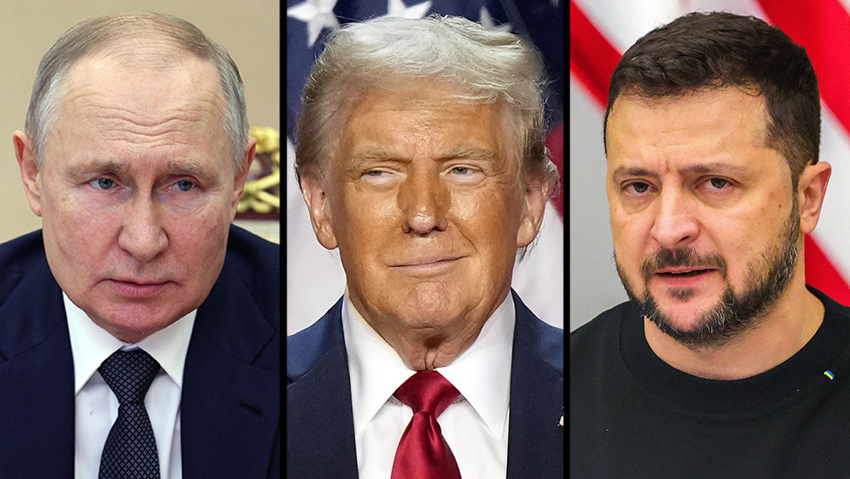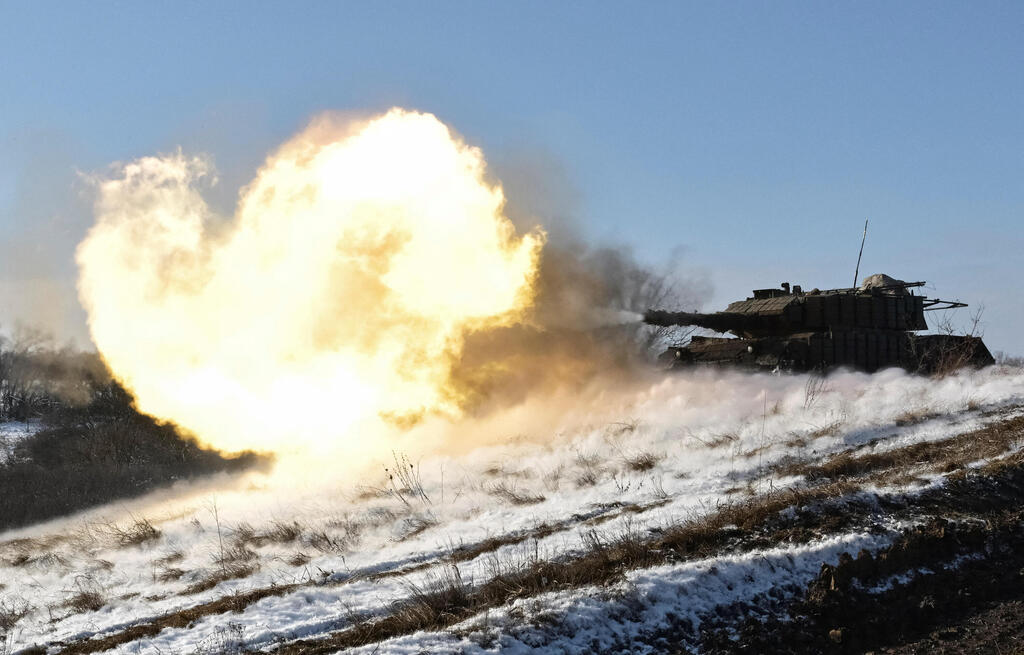The invasion of Ukraine by Russia has led to an ongoing humanitarian crisis, claiming millions of lives and displacing countless individuals. It is a conflict that was totally avoidable, had smarter geopolitical strategies been employed by the Biden administration in the United States and President Volodymyr Zelensky in Ukraine.
Central to this debate is Ukraine’s contentious request to join the North Atlantic Treaty Organization (NATO)—a move that critics say was dangerously ambitious given Ukraine's challenges and its inadequate qualifications for NATO membership at the time.
2 View gallery


Russian President Vladimir Putin, US President Donald Trump and Ukrainian President Volodymyr Zelensky
(Photo: Olivier MATTHYS / POOL / AFP, Alex Brandon, AP, Reuters)
Before the invasion, Russian President Vladimir Putin explicitly warned against Ukraine's NATO aspirations, interpreting them as a direct threat to Russian security. His ultimatum was clear: Step back from the NATO agenda, and there will be no military aggression. Yet, the Biden administration and Ukrainian leadership dismissed these warnings. Instead, Zelensky, bolstered by perceived support from the U.S., seemed resolute in his desire to inch closer to the West, flaunting a stance of defiance that inadvertently expedited military conflict.
Indeed, Ukraine’s repeated requests to join NATO belied its readiness. Issues like pervasive corruption and governance inefficiencies plagued Ukraine, rendering it far from meeting the established criteria for NATO membership. The simple acknowledgment of this reality by the U.S. might have deterred Ukraine's aggressive posturing. Today, as the conflict enters its fourth year, Ukraine remains outside the NATO alliance due to its unqualification, thereby questioning the validity of initial commitments.
Moreover, U.S. President Donald Trump’s innovative approach to de-escalate tensions through negotiations—urging concessions from Ukraine to foster peace—has been lauded as an attempt to prioritize lives over geopolitical chess games rightfully asking Ukraine to concede land for its aggression and mistake of instigating a preventable war.
The premise of Trump's stance is straightforward: Ukraine, while striving to uphold its sovereignty and territorial integrity, needs to consider certain compromises to prevent further bloodshed and destruction within its borders.
The situation is further complicated by questions surrounding the actions, or perceived inactions, of the Biden administration. The Biden administration missed opportunities to mitigate rising tensions because of its bad foreign policy and ego, particularly not using its diplomatic channels that could have highlighted Ukraine's ineligibility for NATO membership and potentially dissuaded a Russian invasion.
Get the Ynetnews app on your smartphone: Google Play: https://bit.ly/4eJ37pE | Apple App Store: https://bit.ly/3ZL7iNv
Undoubtedly, Ukraine's NATO ambitions have been met with fierce opposition from Russia. The Kremlin, under President Vladimir Putin, has consistently viewed NATO's eastward expansion as a direct thorn in Russia's eyes. From this perspective, Ukraine's pursuit of NATO membership has been seen as a provocative act, a maneuver that Moscow perceives as "poking the lion." Given these tensions, President Trump contends that Ukraine should have exercised more prudence, recognizing the potential consequences of their careless actions.
 Duvi HonigPhoto: Avi Deutch, Orthodox Jewish Chamber of Commerce
Duvi HonigPhoto: Avi Deutch, Orthodox Jewish Chamber of CommerceMoving forward, the focus should remain on striving for peace and stability in the region. While the Trump administration's stance holds its rationale, the path to resolution requires collaboration, understanding and negotiation from all parties involved. Emphasizing communication and compromise can help de-escalate tensions, safeguarding the lives and futures of countless citizens caught in the crossfire.
As the war lingers on, the world must reckon with these diplomatic missteps. It is a reminder that nations, big and small, must balance ambition with prudence. The overarching goal should always be peace and the preservation of human life, with diplomacy as the guiding principle.
- Duvi Honig is founder and CEO of the U.S. Orthodox Jewish Chamber of Commerce


